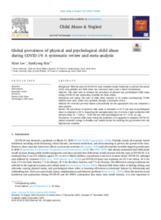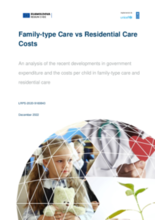Displaying 621 - 630 of 4424
Over six decades, a million ‘orphans’ were shipped to the West from around the world. Now many are finding their past was a fabrication
This video by the Alliance for for Child Protection in Humanitarian Action details the three levels of prevention in child protection in humanitarian action.
Over six decades, a million ‘orphans’ were shipped to the West from around the world. Now many are finding their past was a fabrication.
The goal of this global study was to first identify the global prevalence of child abuse by country or region and second to identify the factors that influenced child abuse during the COVID-19 pandemic.
Adopted children can face many challenges, such as the impact of early trauma. What can parents do to support them? Author and adoptive dad Ben Fergusson investigates.
Persons with disabilities, particularly children, are too often left behind in situations of armed conflict and experience serious risks and challenges to flee, protect themselves and access necessities, UN experts warned today, urging States to take protective measures and ensure inclusion and access to assistance.
Global warming and climate change are happening at an unprecedented rate. Women and girls are especially vulnerable to the effects of climate change, which can include poverty, displacement, and lack of education. These all relate to, and can exacerbate, gender inequality. According to the Global Climate Risk Index, some of the countries most affected by climate change are Mozambique, Zimbabwe, and Malawi; all of which have astounding rates of child marriage. In these countries, 53 percent, 34 percent, and 42 percent (respectively) of girls are married before they turn age 18, often bearing children in their early teens.
This is the launch of a new report called, "What works to prevent online violence against children?"
The objective of this analysis is to provide a better understanding of the government spending towards foster care and residential care services for children deprived of parental care, as well as to estimate the cost per child of such services. The analysis is intended to support UNICEF advocacy efforts towards the closure of residential care institutions in Moldova.
Human rights experts in a Harvard Law School panel on Wednesday discussed how the United Nations has responded to violations of children's rights during global armed conflict. The panelists examined the UN’s attempts to hold governments and non-state actors accountable for rights violations.


